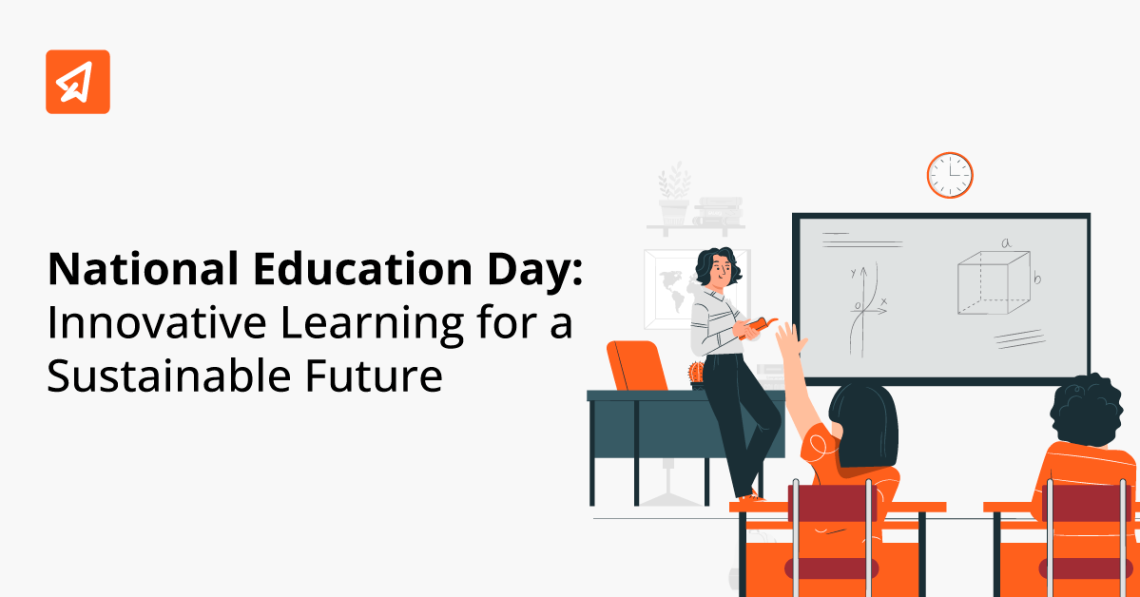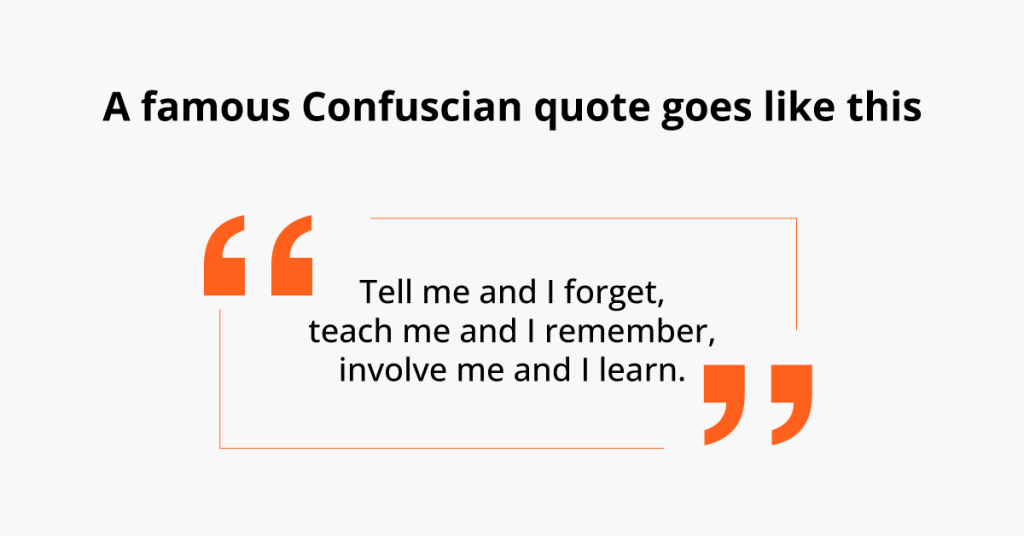National Education Day: Innovative Learning for a Sustainable Future

National Education Day or Shiksha Divas is celebrated on the 11th of November every year to commemorate the birth anniversary of Shri Maulana Abdul Kalam Azad, India’s first education minister. Azad was pivotal in the nation’s growth in its nascent stage by laying a firm foundation for success through the institutes established during his tenure. Being a scholar and theologian in his own right, he enabled grassroots learning in India by also setting up many academic boards and cultural commissions. National Education Day acts as a reminder for the common citizen of the sacrifices and hardships faced by our freedom fighters in laying the groundwork for a literate and prosperous India.
A Sustainable Outlook: The Need of the Hour
The world has seen tremendous progress in the fields of science and technology. From artificial and virtual reality to life-longevity-enhancing biochemistry and mRNA vaccines, the list of new inventions and discoveries is amazing to say the least. However, the issues associated with global warming and climate change too are at a peak. On the occasion of National Education Day in India, we need to acknowledge that as the complexity of tools at our disposal increases, so does the magnitude of our challenges. This calls for the strengthening of our capacity to learn and empower our youth with new-age skills. Competent and professional individuals are required to take on the opportunities and challenges the current situation provides and usher in an era of advancement that is sustainable.
India’s Calling on Shiksha Divas 2023
India is uniquely positioned to influence the future as a potential superpower by riding the wave of innovation and excellence through its largely young population and a huge untapped domestic market. The country is said to be headed towards becoming a 5 trillion-dollar economy after having leapfrogged the UK recently as the 5th largest economy in the world. For any success story on a collective national front, the importance of National Education Day cannot be underscored enough. This opportunity for tremendous development calls for the invigoration of the education sector. A comprehensive academic outlook caters to students’ needs and provides apt learning opportunities.
The Need for Innovative Education
Groundbreaking solutions are being found in various fields, both traditional and unconventional — from farming to microprocessor chips and from space-exploration rockets to biotechnology — where the basis of these innovations has often been an out-of-the-box, competitive, and catalysing environment. When implementing innovative learning practices, the impetus often falls on encompassing a wide range of approaches that go beyond traditional methods. As a result of the ultra globalised world that we are seeing, youngsters are facing potential burnout at the hands of exposure and overconnectivity from a very young age. At this critical juncture, students need an education that can build a strong foundation. This brings into focus how technology can prove to be that catalyst for creating well-rounded future citizens.

Various kinds of research have gone on to show that ‘learning by doing’ goes a long way in character development and building emotional intelligence in children. The young are more likely to implement their academic learnings and build from them in real-world scenarios when the lessons resonate with them at a deeper level of understanding than rote learning.
Tech-enabled Education Strategies and their Advantages
1. Hybrid Learning
Hybrid learning would involve a combination of traditional classroom learning systems clubbed with digital resources and tools. Traditional systems act as an enabler for learners to harness the benefits of technology in a systematic and ethical way. The major advantage of adding modern learning systems is the abundance of personalisation opportunities which grants additional attention to students’ needs as per their interests, strengths, and weaknesses.
2. Virtual Reality and Augmented Learning
The use of Virtual Reality (VR) technology and ArtificIal Intelligence (AI) for creating a comprehensive, immersive and interactive learning setting has already seen a great impact in the education paradigm as it enables the syllabus to undergo ‘gamification’, a term used to denote adding gaming mechanics to non-game environments which attributes a competitive and collaborative approach to studies. This way, concepts considered traditionally as ‘boring’ or of less interest by students can be taught easily without much resistance.
3. Inverted Classrooms
The inverted classroom is a learning mode where the classroom is flipped in a way that students learn through various online resources. This means that children could learn concepts by watching video resources at their own pace and the time in class is utilised for engaging in projects and discussions. This mode could help boost student confidence and self-learning capacities as well as let the instructors’ time be spent focusing on deeper issues.
4. Experiential Learning
This would involve introducing a module where students can learn by doing internships, field trips or small do-it-yourself projects. Digital student exchange programs can be taken up so that students can broaden their horizons by interacting with different people and experiencing their diverse cultures. Another effective strategy would be using community-based issues and challenges as problem statements to craft innovative and sensitive solutions. Also, given the current impetus worldwide to sustainability as a framework for our future with concepts like net zero, carbon neutrality, and low ecological footprint coming to the fore, digital programs in essential learning strata could be designed and introduced as Sustainable Sciences.
A few effective modules that could be introduced:
1. Environmental Sciences
2. Renewable Energy
3. Green Building and Architecture
4. Sustainable Agriculture
5. Efficient Transportation
Extramarks Smart Class Plus is one such attempt that enables a digital transformation of traditional teaching-learning processes by powering new-age classrooms. Interactive digital content with pop-up quizzes, brain-teasers, and interactive simulations for extra engagement provides students with the opportunity to learn in innovative ways.
The need for sustainability as an inclusive parameter in all of mankind’s endeavours has thrown a unique challenge for today’s creators. Innovative education is the key to a tomorrow where path-breaking solutions to grave challenges facing the world become commonplace. That requires the citizens of tomorrow to be equipped with the knowledge and skills that equip them to navigate the future with ease. Partner with Extramarks in your journey towards shaping the citizens of a progressive India.
Last Updated on April 16, 2025









